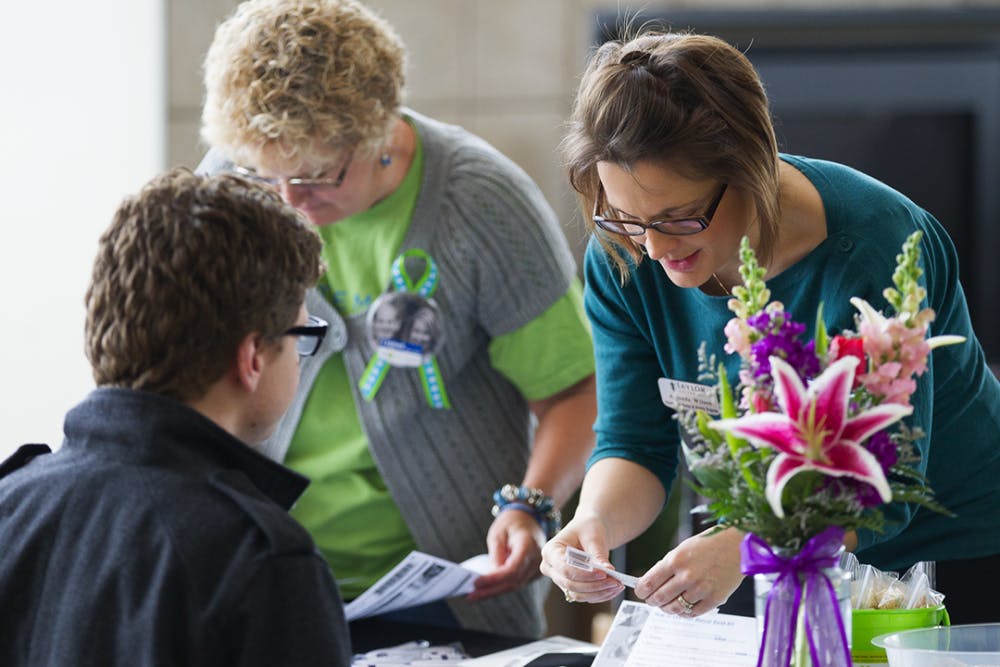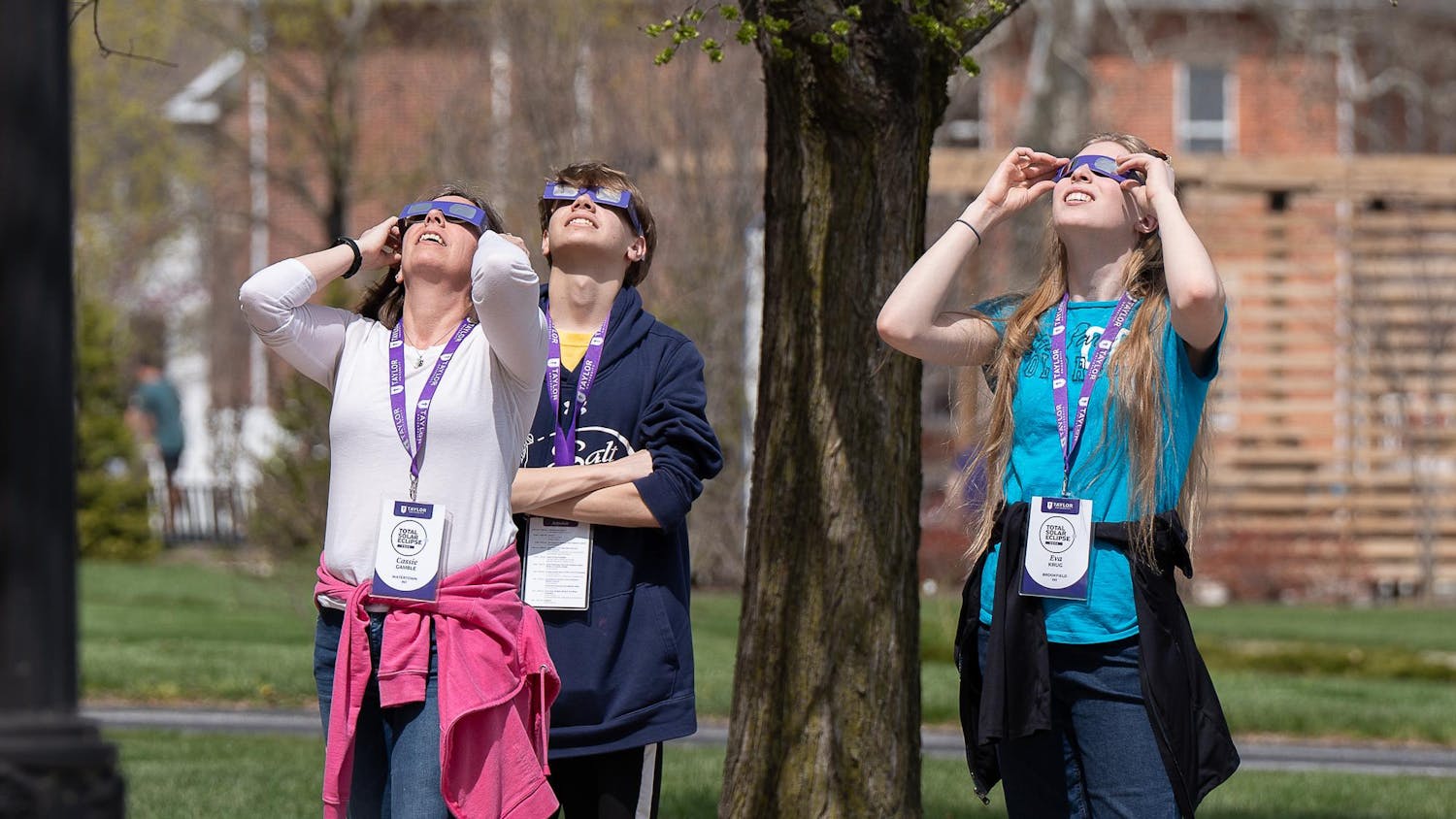By David Adams
When junior Alix Stuart joined the Be the Match Registry in the fall of 2011, she did not expect she would ever be called to donate bone marrow or peripheral blood stem cells (PBSC). After all, the odds of a registry member being called are only 1 in 540, according to marrow.org, the website of the National Marrow Donor Program and the Be the Match Registry.
But just before Christmas, Stuart received an email that she was a possible match for a 59-year-old woman in Germany who needed a stem cell transplant. Just after returning from a Lighthouse trip over J-term, Stuart went home to Columbus, Ohio, to complete the donation-a sacrifice that saved the woman's life.
For the 60 Taylor students who were tested to join the Be the Match Registry on Wednesday, a lifesaving donation like Stuart's could be in their future. Wednesday's drive was hosted by Amanda Wilson, director of Parent and Family Programs, and Kerry Kallina, a member of the Parent's Council, along with student volunteers and volunteers from the Indiana Blood Center.
Kallina was interested in bringing a Be the Match drive to Taylor because of her acquaintance with the family of Rorie Joslin, a 3-year-old Texas girl fighting hypodiploidy acute lymphoblastic leukemia, a cancer of the white blood cells that can be fatal.
"Even though we have a face to go with this drive, this is going to help people nationally," Kallina said.
At the drive, students swabbed the inside of their cheeks to collect a sample of cells that will be sent to laboratories to be typed, based on their human leukocyte antigens (HLA). HLA are proteins that mark most cells in the body, allowing the immune system to determine what cells are foreign and need to be destroyed.
The results of the HLA typing will be listed on the Be the Match Registry. Doctors can compare their patients' HLA typing with registry members' typings in search of a match. About 7,500 people are searching the registry at any given time in the U.S., according to the Institute for Justice. As many as 3,000 people die each year while waiting for a match, USA Today reported.
Two volunteers hoped that Wednesday's drive could find a match for their loved ones who need a bone marrow transplant. Freshman Zach Beeson's girlfriend, Karly, has a genetic disorder called Dock8 deficiency that weakens her immune system but could be cured by a bone marrow transplant.
"It's extremely encouraging," Beeson said. "The more people that are added to the registry, the greater chance of finding a match, which could very well save (Karly's) life."
Volunteer Barb Morris, whose 27-year-old son, Joel, is waiting on a match, encouraged students to join.
"It's such an easy thing for somebody to give to save lives-if not my son then somebody else," Morris said. "There are people out there (who) are in desperate need of bone marrow. . . . They need that transplant in order to survive."
Stuart deeply understands the impact donors can have now that she has been one herself.
"My schedule and my time and my body aren't nearly as important as someone else's life," Stuart said. "What would I give for someone I don't know? How much am I willing to give? It's definitely changed my life."




